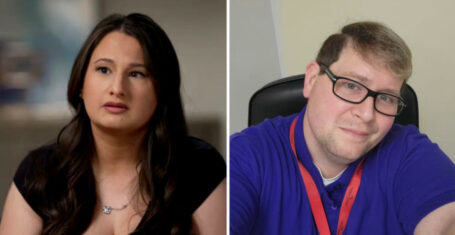
The Importance of Seeing ‘The Importance of Being Earnest’
An outstanding performance of Oscar Wilde’s most famous play at the Norwich Playhouse.
Following on from our preview of director Michael Cabot’s The Importance of Being Earnest, The Tab was invited to watch the famous play by Oscar Wilde and, thankfully, it didn’t disappoint.
Performed at the Norwich Playhouse, the play began with a very naturalistic stage, composed of a few floral armchairs, and effective lighting, suggesting the grand windows of some expensive house in London.
The play opened with Algernon, played by Ashley Cook, talking to his manservant Lane, played by Jonathan Ashley. Special mention has to go to Jonathan Ashley, who garnered many of the biggest laughs of the night despite his incredibly fleeting performance.
Ashley Cook excelled as Algernon, delivering his lines with impeccable suaveness and sophistication that made his character instantly charismatic, rather than, in the hands of perhaps a lesser actor, where he could have come across as more of a spiteful personality.
From left to right: Helen Phillips as Cecily Cardew, Judith Paris as Lady Bracknell, Jonathan Ashley as Lane and Helen Keeley as Gwendolen Fairfax.
While usually the opposite has to be said of the theatre, one of the problems of the performance was the tendency of some of the characters to shriek so loudly that it grated upon the audience’s ears, characters such as Jack Worthing and Cecily Cardew.
Part of this may be attributed by the move from London and the transition into what is a particularly long theatre, physically, with the audience further removed from the stage that some theatres, many of which stretch upwards rather than backwards.This is not to say that Paul Sandy’s Jack Worthing and Helen Phillips’ performances were poor.
In fact, the opposite is true. Paul Sandy brought a funny kind of impotence, nervousness and foolishness to the role that most will enjoy but others who are more familiar with the deadpan film version of the character, played by Colin Firth, might be a little disappointed.
Indeed, painting him as more of a fool does mean that some of Algernon’s digs at his sense of propriety may fall slightly short for some. Nevertheless, the relationship between Algernon and Jack Worthing was inestimably entertaining and, often, hilarious and it is the strength of their chemistry that really forms the crux of the play.
What was most well done about the female characters was the sense of variety between them. Cecily Cardew, played by Helen Phillips, was very giggly and excitable, prone to shrieking and spontaneous action, whereas Gwendolen Fairfax, played by Helen Keeley, was dry, witty and more calculating.
The vast contrast between these two characters was delightful and hilarious to watch, especially the speed at which their loyalties shift from liking to hating each other, as Wilde parodies those false friendships that existed back then and, most probably, are still prominent now, though we probably call it bitchiness, and it is nowhere near as elegant and unspoken as bitching was back then!
Cecily (left): I am afraid you must be under some misconception. Ernest proposed to me exactly ten minutes ago. (Shows diary.)
Gwendolen (right): It is certainly very curious, for he asked me to be his wife yesterday afternoon at 5:30.
Judith Paris played Lady Bracknell and she did a truly marvellous job, a performance that was reminiscent of Maggie Smith in Downton Abbey, who is often entirely misguided in her philosophical musings, but nevertheless wields ultimate power over the majority of the characters.
Having a character so dry and methodical, in a play that is stuffed with such a large amount of whimsy, hi-jinks and coincidence, truly makes for comedy gold, though this aspect, of course, was mostly down to Wilde himself.









































